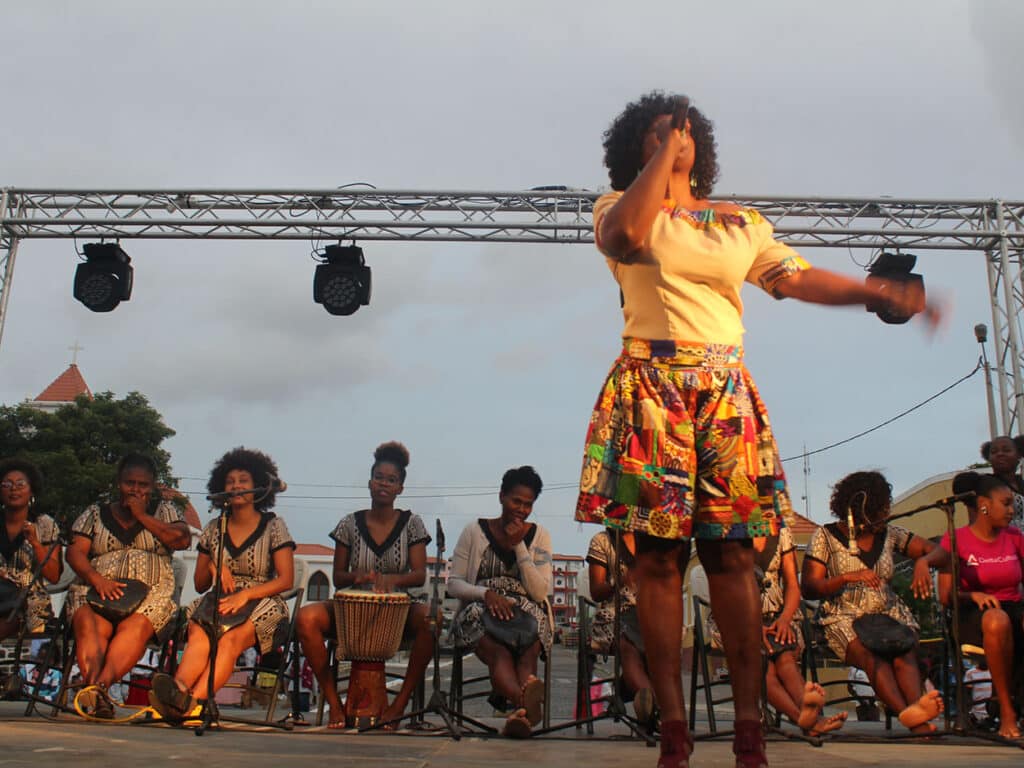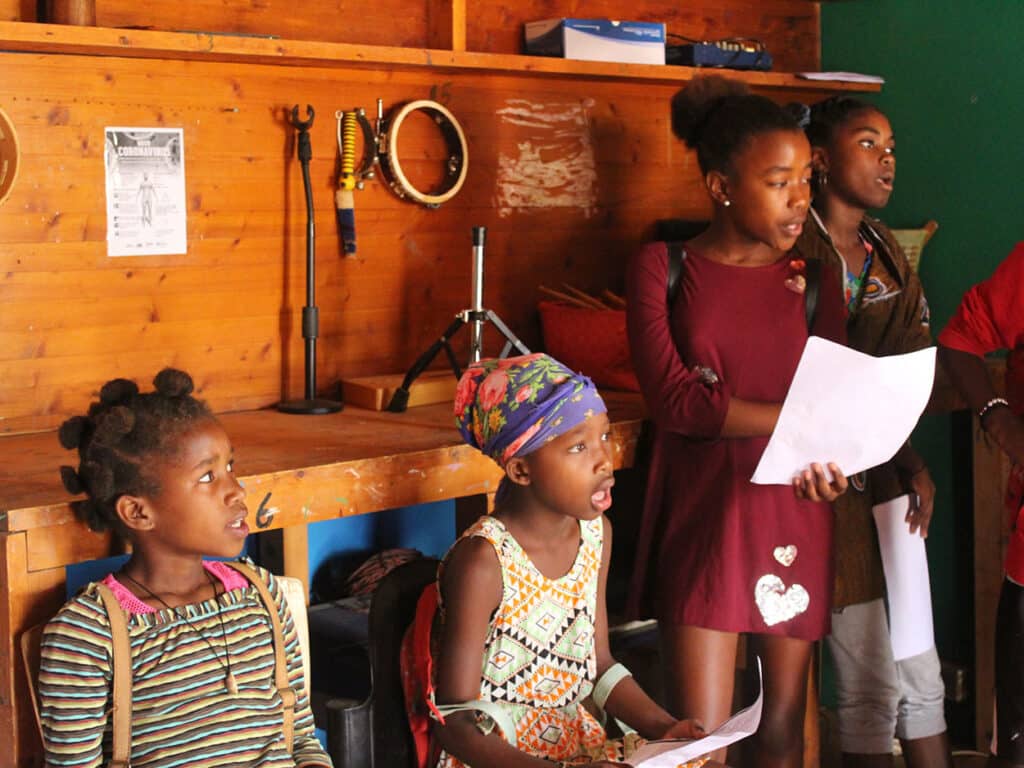Batuco
Batuco is a drum-singing-dance tradition that originally comes from the island of Santiago and is performed exclusively by women.
Co-founder of Delta Cultura, Marisa, founded the Batucadeiras Delta Cultura, as the group is called, in 2003. The group is now known beyond the island and keeps this tradition alive.
The group performs in various restaurants for tourists, but also at traditional festivals such as weddings, birthdays, etc. Batuco should also not be missing from the activities related to the various village saints.
Drumming is done on plastic bales, the so-called chabetas, because drums were forbidden during the time of colonization by the Portuguese. Bolts of fabric were originally used. A drum is now also often part of the performances.
There is a lead singer and a choir that drums and repeats the singing. At the end of the song, one, two or three dancers come and perform the so-called tornu. They have a cloth tied around their hips, the so-called sulada, which is repeatedly untied and re-tied during the dance. This Sulada symbolizes the shackles of the colonialists.
The song lyrics written by Marisa are about social injustices, talk about the culture of Cabo Verde or even make fun of Cape Verdean men.
For many years, Delta Cultura has often organized the Batuco Festival together with the municipality of Tarrafal. Batuco groups from all over the island come together here, have lunch together and then, follow the performances by all the groups present. This festival is very popular with the population and is always well attended.




